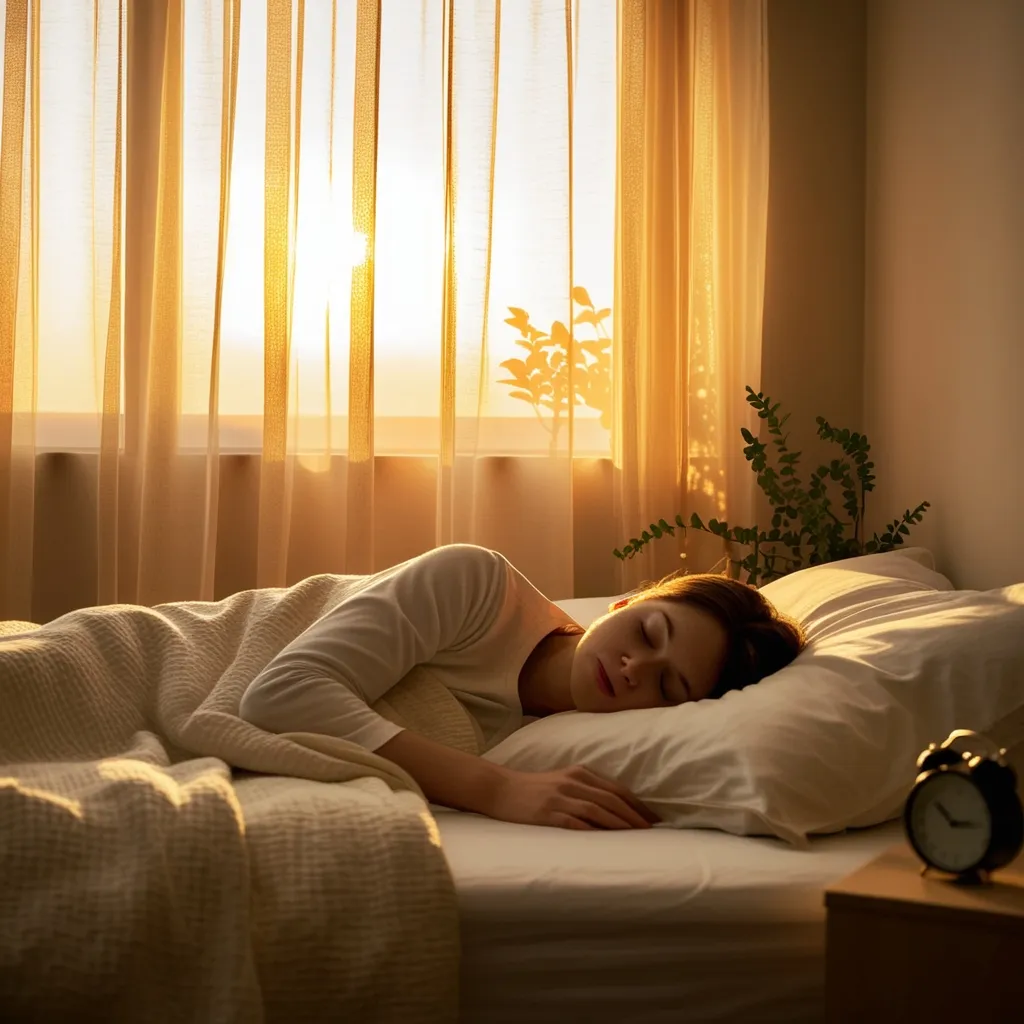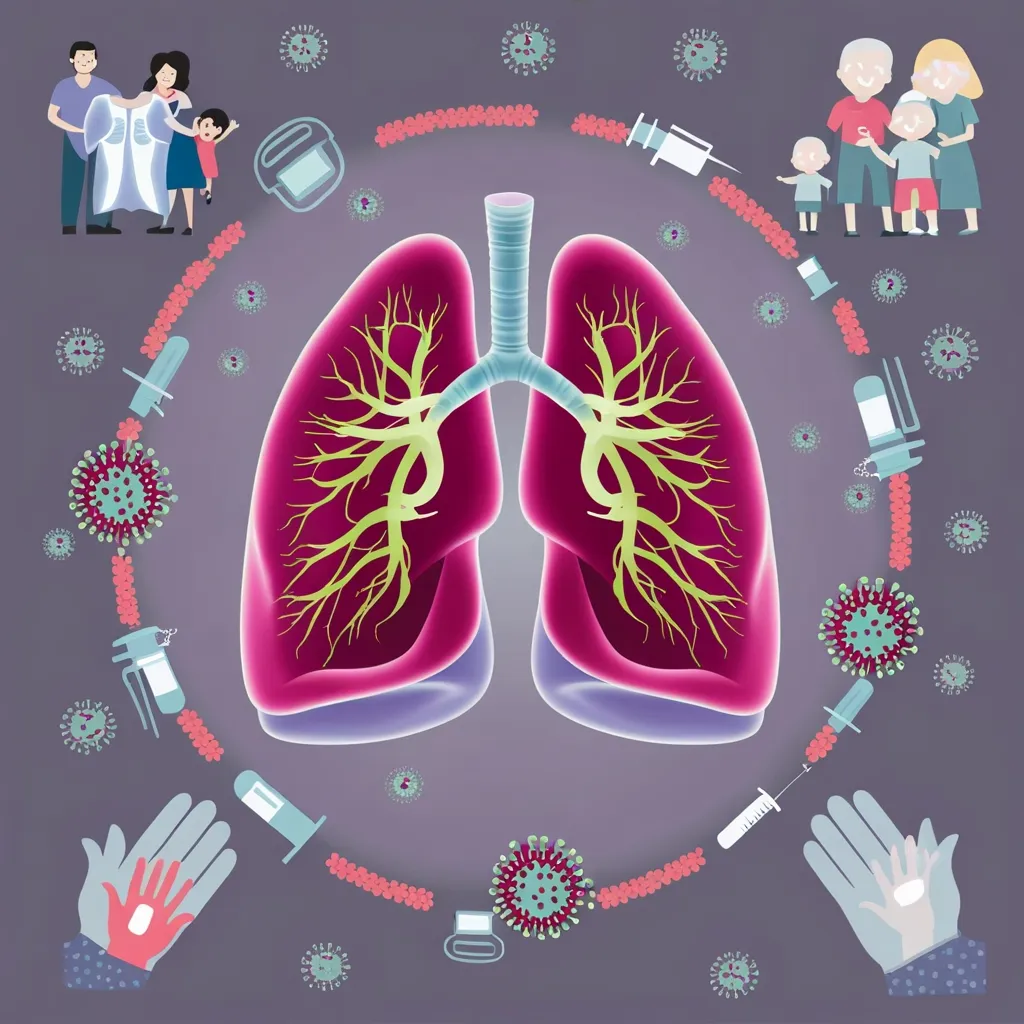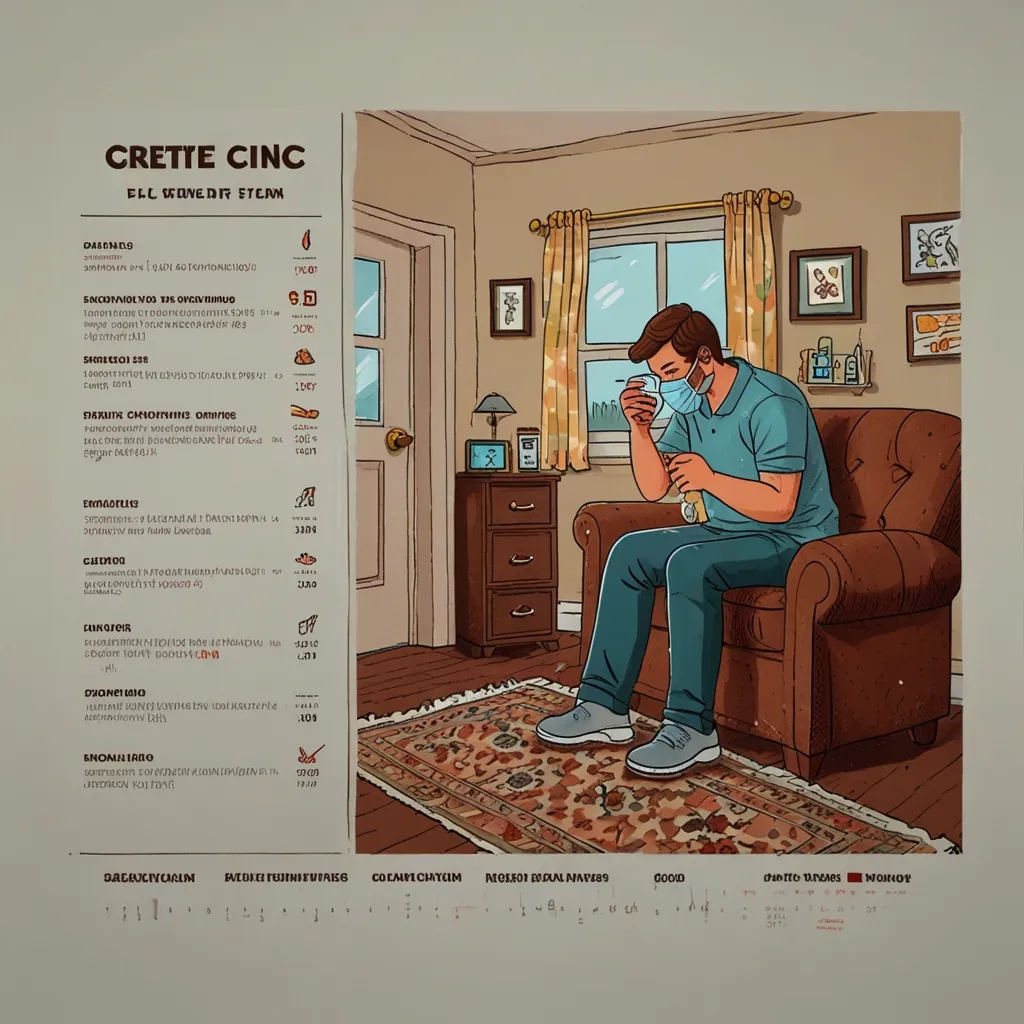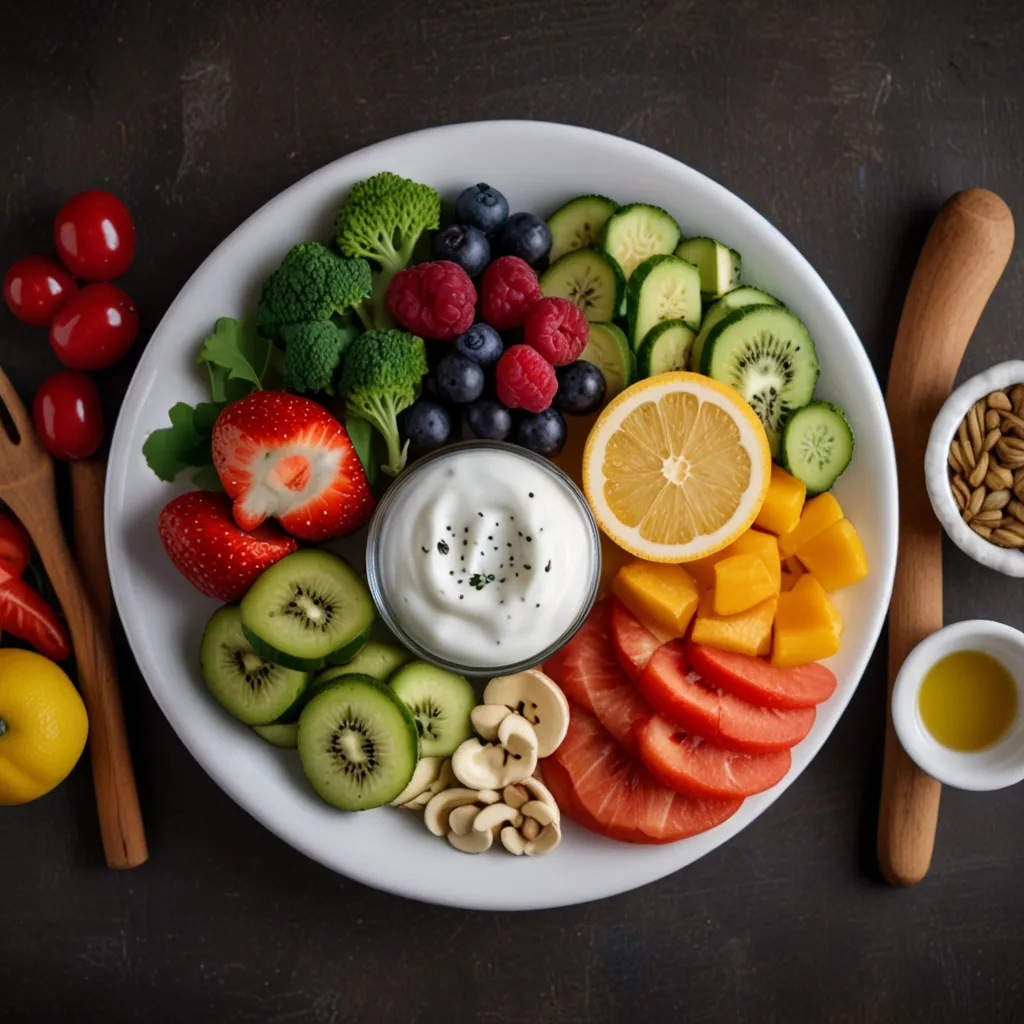Unlocking the Secrets of Your Body’s Internal Clock
Ever feel like your body has a mind of its own? Well, in a way, it does! It’s called your circadian rhythm, and it’s like a tiny conductor orchestrating your daily biological symphony. This internal clock governs everything from when you feel sleepy to when you’re most alert and productive. Let’s dive into the fascinating world of circadian rhythms and how you can harness their power to boost your health and well-being.
The Science Behind Your Body’s Rhythm
Picture this: deep in your brain, there’s a tiny region called the suprachiasmatic nucleus (SCN). Fancy name, right? This little guy is super sensitive to light and darkness, and it’s the mastermind behind your circadian rhythm. It’s like having a personal assistant who tells your body when it’s time to wake up, eat, and hit the hay.
The SCN is all about keeping you in sync with the world around you. When morning light hits your eyes, it’s like someone flipped a switch in your brain. Your body gets the message: “Time to rise and shine!” As night falls and darkness sets in, your brain starts producing melatonin, the sleep hormone. It’s nature’s way of saying, “Hey, buddy, time to wind down.”
Sleep: The Rhythm’s Greatest Hit
If your circadian rhythm had a greatest hits album, quality sleep would be track one. When your internal clock is humming along nicely, you’ll find yourself drifting off easily at night and waking up feeling refreshed. But throw a wrench in the works – like jet lag or working the night shift – and suddenly your sleep goes haywire.
Ever tried to sleep when your body thinks it’s the middle of the day? It’s like trying to do the cha-cha to a waltz – things just don’t line up right. That’s why it’s so important to keep your circadian rhythm on beat.
Lighting Up Your Life (At the Right Times)
Light is like the conductor’s baton for your circadian rhythm. Natural daylight keeps your internal clock ticking along nicely. But here’s the catch – artificial light, especially the blue light from our beloved screens, can throw everything off kilter.
Think about it: you’re scrolling through social media late at night, and your brain’s getting mixed signals. “Is it daytime? Should I be awake?” No wonder you’re tossing and turning when you finally put the phone down.
Try this: in the evening, dim the lights and use warm, soft lighting. And those screens? Give them a rest an hour or two before bedtime. Your eyes (and your brain) will thank you.
Sweat to the Rhythm
Exercise is another great way to keep your internal clock in check. But timing is everything. For most people, a morning workout is like a double espresso for your circadian rhythm. It wakes you up and gets you ready to tackle the day.
But everyone’s different. Maybe you’re one of those people who feels energized after an evening run. The key is to listen to your body and find what works for you. Just try to avoid intense workouts right before bed – unless tossing and turning is your idea of a good time.
Eat, Sleep, Repeat
Your eating habits play a big role in your circadian rhythm too. Ever heard of time-restricted feeding? It’s a fancy way of saying “eat when your body clock says it’s time to eat.”
Try to eat your main meals during daylight hours. Late-night snacking might be tempting, but it can confuse your body’s natural rhythms. Plus, nobody likes going to bed feeling like they just ate Thanksgiving dinner.
Timing is Everything (Even for Meds)
Here’s something you might not have thought about: the time you take your medications can make a difference too. Your body processes different drugs differently at various times of the day.
For example, that headache pill you pop? It might work better during the day. And some vaccines could be more effective depending on whether you get them in the morning or evening. Wild, right? Always chat with your doctor about the best time to take your meds.
Tech to the Rescue
In this day and age, we’ve got gadgets to help us with everything – including understanding our circadian rhythms. Smartwatches and fitness trackers can give you a peek into your sleep patterns and activity levels.
There are even apps that can help you figure out your personal circadian rhythm. Imagine having a personal coach for your internal clock right on your wrist! These tools can help you adjust your habits to get in sync with your natural rhythms.
Your Rhythm, Your Rules
Here’s the thing: we’re all different. Some of us are early birds, ready to seize the day at the crack of dawn. Others are night owls, hitting their stride when the sun goes down. There’s no one-size-fits-all approach to circadian rhythms.
The key is to pay attention to your body. When do you feel most alert? When do you start to crash? Keeping a sleep log can help you spot patterns and make adjustments. It’s like being a detective, but instead of solving crimes, you’re cracking the code of your own body clock.
Putting It All Together: Your Circadian Self-Care Routine
Now that you know the secrets of your internal clock, it’s time to put that knowledge to work. Here’s a sample day in the life of someone living in harmony with their circadian rhythm:
Morning: Rise with the sun (or close to it). Do some gentle stretches or a quick meditation to ease into the day.
Midday: Take a break from work to step outside. A bit of sunshine and fresh air can do wonders for your energy levels.
Evening: As the day winds down, so should you. Dim the lights, put away the screens, and do something relaxing like reading a book or taking a warm bath.
Remember, it’s all about finding what works for you. Your perfect circadian routine might look different from someone else’s, and that’s okay!
The Big Picture: Why Your Rhythm Matters
Understanding your circadian rhythm isn’t just about getting better sleep (although that’s a pretty sweet perk). It’s about overall health and well-being. Working against your natural rhythms can lead to all sorts of health issues, from diabetes to heart disease.
On the flip side, when you’re in sync with your internal clock, you’re setting yourself up for better health, improved mood, and sharper thinking. It’s like giving your body the instruction manual it’s been looking for all along.
So, there you have it – the inside scoop on your body’s internal clock. By tuning into your natural rhythms and making some simple tweaks to your daily routine, you can unlock a whole new level of health and vitality. It’s time to start dancing to the beat of your own circadian drum!






